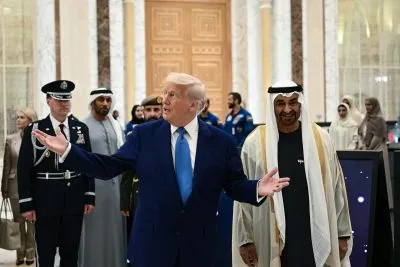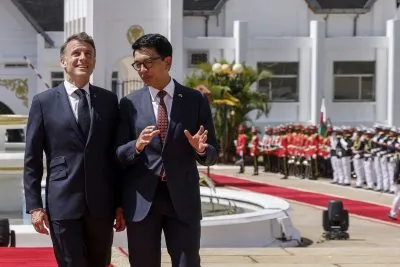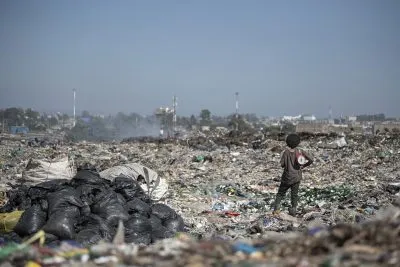This month’s African Business Investigative Report dives into the murky world of one of the world’s biggest national frauds – the billions that are being siphoned out by unscrupulous traders and officials abusing the fuel subsidy system. The full, shocking scale of the fraud has only just emerged into the daylight and it reveals outrageous scams that are bleeding the Nigerian people dry. Report by John Beattie.
Despite several years of impressive economic growth, political and financial scandals continue to dominate the headlines in Nigeria. Yet no single factor is worth more to the country’s economy than the battle over fuel subsidies.
It has long been known that the practice of subsidising petrol and diesel prices was a major drain on the national budget and that the process also encouraged criminal activity. However, the full cost of the practice and the scale of the scams surrounding it have only become apparent in recent months. Here are three statistics that should shock any reader.
Firstly, the government of Nigeria pays subsidies on 59m litres of fuel a day, while the country consumes just 35m litres a day.
Secondly, the government paid or owed $14bn in subsidies in 2011, up 154% on the previous year, and almost two thirds the amount of Abuja’s entire budget for the year, which stood at $22bn.
Thirdly, the number of companies importing fuel increased from six in 2006 to 140 by 2011, suggesting that there are huge profits to be made from the trade.
Successive governments have tried to lift the subsidies. The most recent attempt was made in January 2012, when President Goodluck Jonathan decided to remove all state support, increasing the official price of diesel from $0.40 per litre to $0.86 per litre overnight. Street protests and a general strike persuaded the government to reinstate half of the subsidy. This is typical of most attempts. No government has sought to phase out the subsidies gradually over a long period of time, suggesting that some have even set out to fail.
It had previously been difficult to calculate the scale of fuel subsidy scams because of the lack of transparency in the oil industry, including within the state-owned Nigerian National Petroleum Corporation (NNPC).
After the government backed down in January 2012, it commissioned a number of investigations into the oil industry, fuel imports and retailing. Most have now reported, including the House of Representatives Committee and the Petroleum Revenue Special Task Force (PRSTF).
The latter’s report was finally made public at the end of October after a series of leaks. Until relatively recently, Abuja attributed the high cost of subsidies to the high international price of oil, the rising number of vehicles in the country and exchange rate fluctuations. There is little doubt now, however, that crime is in large part to blame.
Why subsidies exist
The government and the trades union movement agree that fuel subsidies have been maintained in order to allow the population as a whole to benefit from the nation’s biggest industry. This is true, in that the subsidies reduce the cost of motor and cooking fuel, while also depressing the price of the many goods that are transported around the country by road.
Although it is generally opposed by the IMF, the same policy is followed by many other governments across Africa.
In addition, there is general agreement that most Nigerians have not benefited from the country’s natural resources to any great extent because of decades of corruption and mismanagement. However, this argument falls downs because the subsidies are not usually paid on Nigerian oil but on imported fuel.
Nigeria’s subsidy system almost seems designed to enable corruption, as traders submit their own subsidy applications based on the amount of refined petroleum products – such as petrol and diesel – which they import into Nigeria.
Firstly, they can exaggerate the volume of fuel imported. Secondly, subsidies have been paid on large import consignments that do not even exist. In one case, 15 import firms received subsidies worth $300m without importing any fuel at all.
Thirdly, the system encourages the practice of ‘round tripping’, whereby traders load refined fuel on to tankers to take it briefly outside Nigerian territorial waters before offloading it again at a Nigerian port.
This allows them to claim the subsidy twice, or to claim the subsidy on fuel that has been illicitly refined at one of Nigeria’s hundreds of illegal small scale refineries. The same cargo can even be round tripped several times in succession.
The Nigerian military’s joint task force located and destroyed almost 300 such refineries over a 15-week period in the Niger Delta alone in 2008. Finally, some scammers alter the date of their fuel import in order to benefit from higher oil prices.
Nigeria is in a very strange position. It is the biggest oil producer in Africa but refines little of its own output and is forced to rely on imports to satisfy most of its fuel requirements. Even according to Ministry of Petroleum estimates, about 70% of the country’s fuel needs are imported.
It is also the only major oil exporter in the world that markets none of its crude oil directly to refineries but rather opts to sell its entire production to commodity traders. This means there is very little transparency from one end of the process to the other.
Although it is difficult to prove, there must be direct links between the subsidy scam and Nigeria’s persistent failure to refine more of its own crude oil production. Many oil producing states need to import more specialist sorts of refined petroleum product, such as aviation fuel, but Nigeria should be self-sufficient or even a net exporter of petrol and diesel.
However, the NNPC’s four refineries have produced far less than their official combined production capacity of 445,000 barrels a day (b/d) for many years if not decades
Each new government promises to invest in their modernisation or to ensure the construction of new refineries by private sector operators. Tenders for the development of new facilities are offered every few years and sometimes reports appear that they have been awarded. On each occasion, little progress is made and import dependency continues.
The NNPC continues to act as if its refineries were fully operational, taking the crude oil that would otherwise have been used as feedstock by the refineries and exchanging this elsewhere for fuel.
According to the government investigations, the NNPC admitted that it did not even know where 65,000 b/d of this refining allocation actually ended up.
It was also revealed that the NNPC paid N310bn ($2bn) in kerosene subsidies between 2009 and 2011, despite the fact that the kerosene subsidy was abolished prior to 2009. Jonathan’s plan to unbundle and reform the NNPC is clearly not before time.
The subsidies also encourage cross-border fuel smuggling. Fuel of all kinds has historically been cheaper in Nigeria than in the rest of the region and so vast amounts of Nigerian petrol and diesel is regularly smuggled into neighbouring states by both sea and land.
A large proportion of the petrol and diesel consumed in neighbouring states – and particularly in Benin – comes from Nigeria. The money generated by this trade is diverted from government coffers across the region and is sometimes used to fund other criminal activities.
Shocking revelations
Many of the facts uncovered by the House of Representatives Committee and PRSTF reports are truly appalling. For instance, they state that the accountant-general made 128 fuel subsidy payments each of N999m ($6.3m approximately) within 24 hours over the 12th and 13th of January 2009, totalling N127.872bn ($813m). It is highly unlikely that 128 consecutive fuel consignments of exactly the same value would have been imported in such a short period.
In addition, the recipients of the payments have not yet been identified. All 140 importers were asked to appear before the House Committee or to provide written evidence to legitimise their activities. A shocking 45 failed to do either.
The House investigation reported: “Contrary to statutory requirements and other guidelines under the Petroleum Support Fund Scheme mandating agencies in the industry to keep a reliable information database, there seemed to be a deliberate understanding among the agencies not to do so.
The subsidy regime, as operated between the period under review (2009 and 2011), was fraught with endemic corruption and entrenched inefficiency.
It is therefore apparent that the insistence by top government officials that the subsidy figures were for products consumed was a clear attempt to mislead the Nigerian people.”
It added: “False claims were rampant. The scheme became an avenue for all forms of patronage … a record that can hardly be rivalled in the history of a warped budget management of any nation anywhere in the world.” Unsurprisingly, the Committee investigation has attracted a great deal of controversy. Committee chairman, Farouk Lawan, said: “We were threatened several times in so many ways. We were told that we were not going to live long [enough] to even finish the exercise. There were death threats, very clearly death threats. Fortunately we are still around.”
Aminu Waziri Tambuwal, the speaker of the House of Representatives, said: “We are fighting against entrenched interests whose infectious greed has decimated our people. Therefore, be mindful they will fight back and they normally do fight dirty.”
The wider picture of petro-crime is equally grim. The PRSTF agreed with an estimate by Oby Ezekwesili, the World Bank’s ex-vice-president for Africa, that Nigeria had lost $400bn to oil industry-related crime since independence.
The PRSTF also concluded that 40% of all fuel that is imported or refined in Nigeria is lost to sabotage and/or theft. This is not a marginal problem. Ending fuel subsidy rackets would not put a stop to all oil sector corruption but it would be a good place to start. Upstream, refining and downstream corruption is all interlinked.
On a more positive note, 2011 could be the high-water mark of the subsidy scandal because of the reductions in subsidies in early 2012.
Figures from the Petroleum Products Pricing Regulatory Agency (PPPRA) reveal that the government spent N679bn ($4.2bn) on fuel subsidies over the 10 months January-October 2012, roughly half the N1.3 trillion ($8.3bn) spent in the same period in 2011. This appears to reflect the 50% reduction in the level of fuel subsidies, rather than any fall in subsidy related corruption.
However, the executive secretary of the PPPRA, Reginald Stanley, says that his organisation has reduced the number of marketing companies to 38.
He added: “We successfully cleaned out 90 companies, while setting stringent regulatory conditions which would make it difficult for marketers to short-change the system. Our efforts have not stopped here, as we are more than determined to refer any matter to the Economic and Financial Crimes Commission, should we notice any infraction.”
Outlook
Political will in Abuja is certainly the key element in ending the fuel subsidy scam. The big question is whether those implicated will face trial and then imprisonment, if convicted. No significant players have been jailed to date.
Finance Minister Ngozi Okonjo-Iweala had suspended the payment of N161bn ($387m) in subsidies during 2012.
However, international cooperation is also needed. The Nigerian government had sought help from Swiss oil trading firms but they refused to provide the requested information. As a result, Abuja has now asked the Swiss government to intervene.
With or without criminal activity, there are surely better ways for the Nigerian government to spend its money than subsidising the cost of fuel.
This money could be better used in countless other ways, from health and education spending, to investing in much-needed infrastructure and topping up the government’s Excess Crude Account (ECA) to ensure future economic stability. Even in a period of high oil prices, Abuja may be forced to utilise its ECA this year merely to balance the books.
Many Nigerians agree that subsidising fuel is not the best use for the money but fear that any diverted funds would not be spent for the benefit of the Nigerian people.
It is widely argued that some within the political and economic elite would merely find another way to siphon off the money. Just over 12 months ago, Jonathan promised to invest the money saved on fuel subsidies in education, health and power projects. Although the ensuing protests had a political element, many people clearly did not believe him.
Nevertheless, as non-governmental organisation Human Rights Watch has argued, reducing petro-crime “will not in itself necessarily improve government spending practices, but the diversion of revenues before they reach government coffers means that there is not even the possibility that these resources will be used for the public benefit”.
Accepting continued corruption should not be an option for the Nigerian people.
Want to continue reading? Subscribe today.
You've read all your free articles for this month! Subscribe now to enjoy full access to our content.
Digital Monthly
£8.00 / month
Receive full unlimited access to our articles, opinions, podcasts and more.
Digital Yearly
£70.00 / year
Our best value offer - save £26 and gain access to all of our digital content for an entire year!

 Sign in with Google
Sign in with Google 





